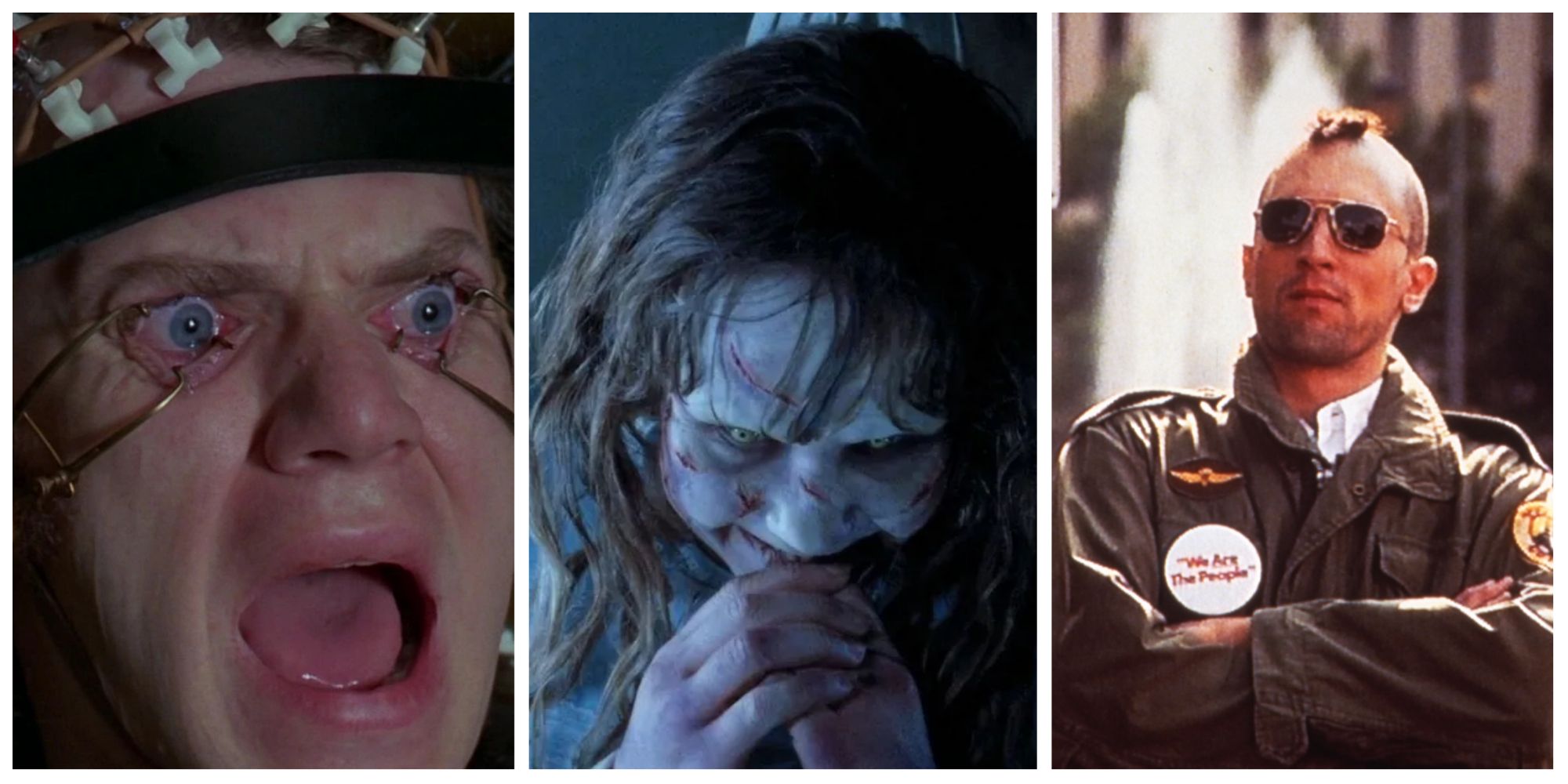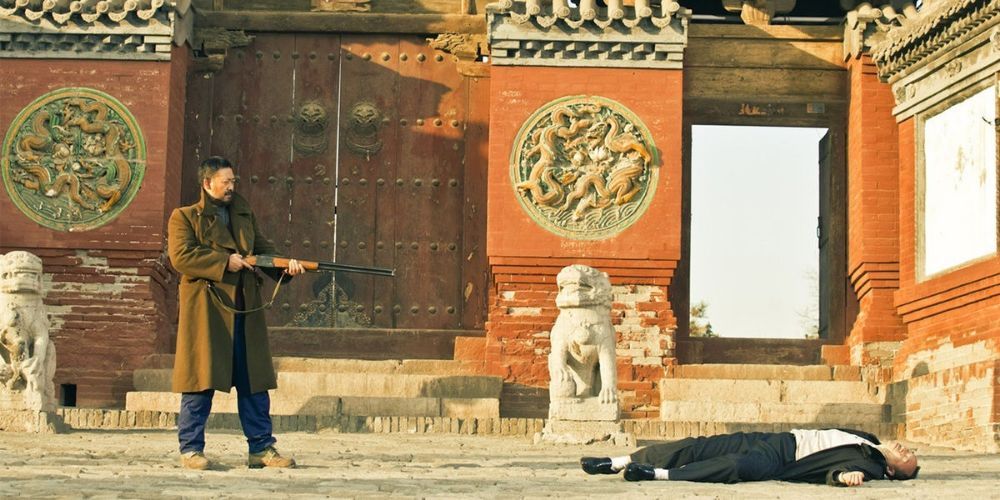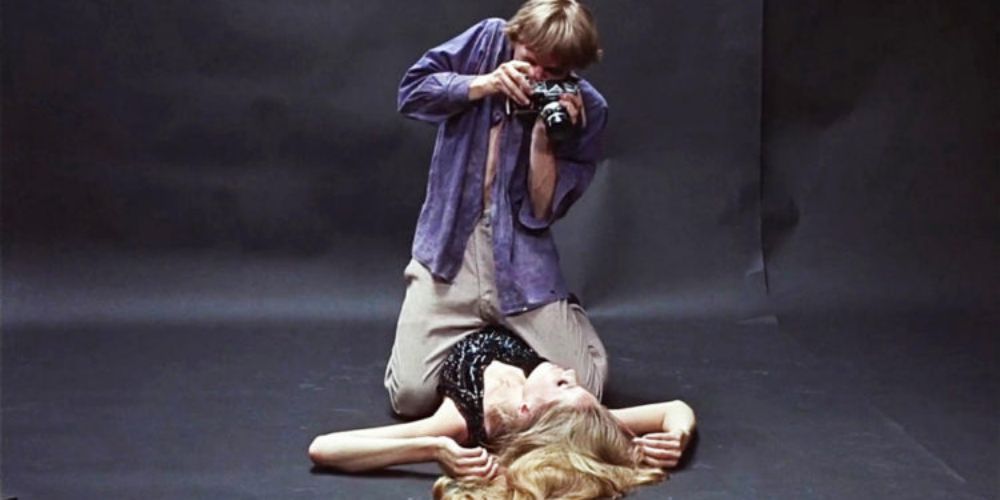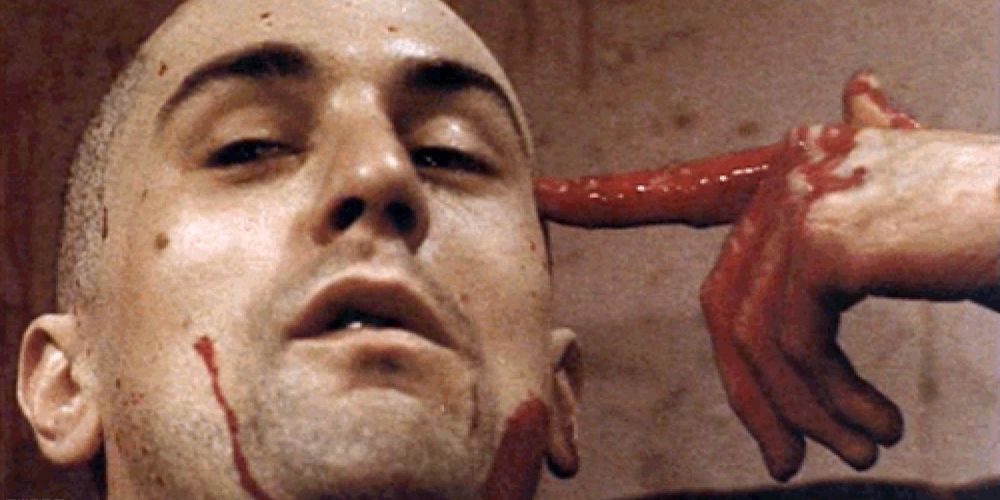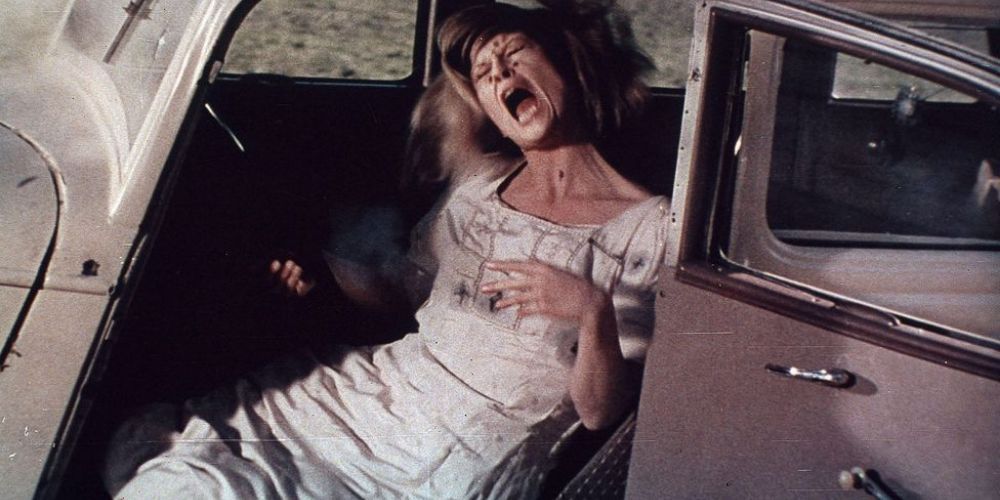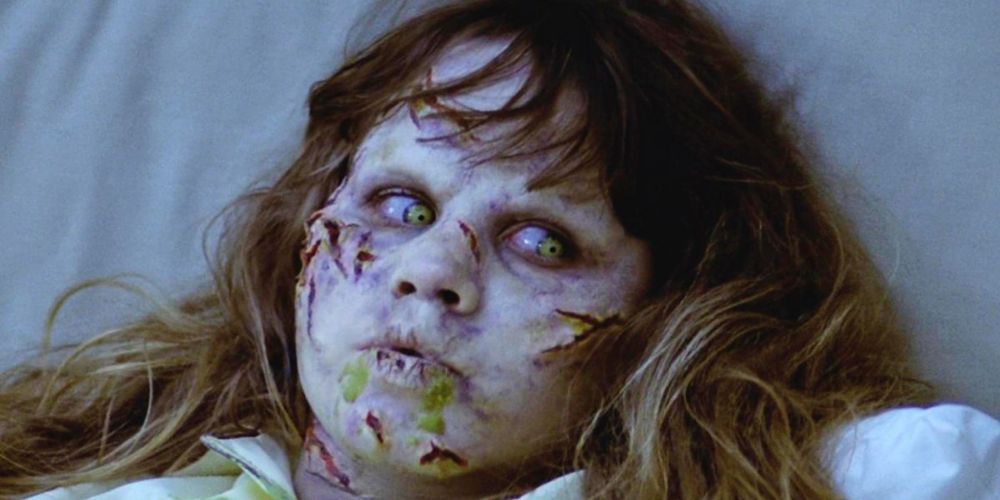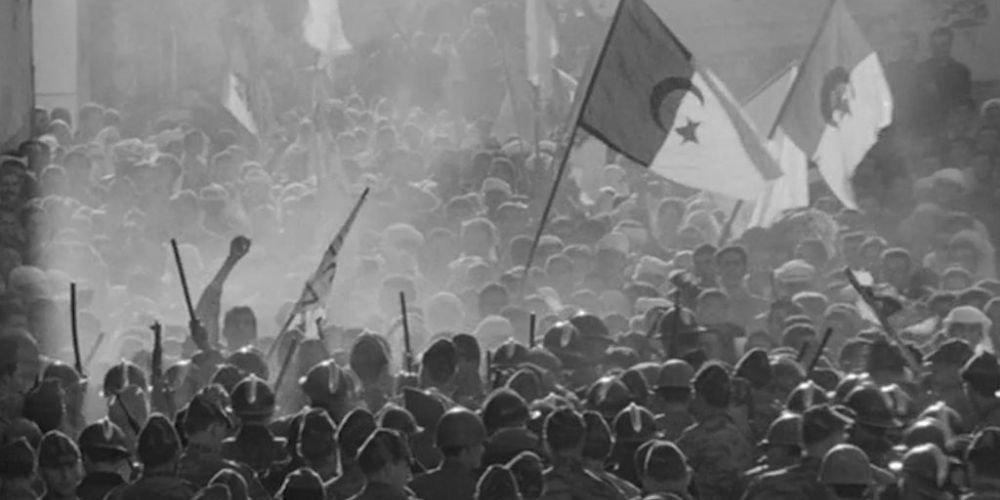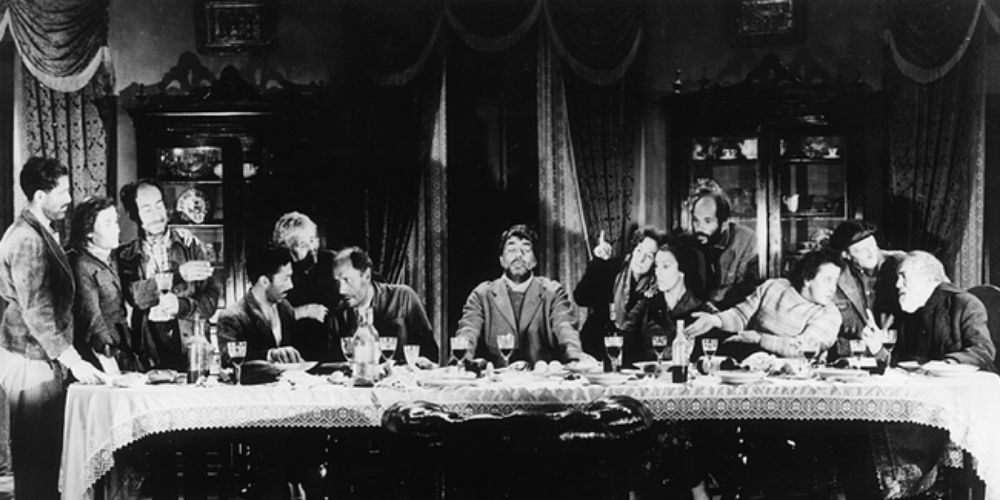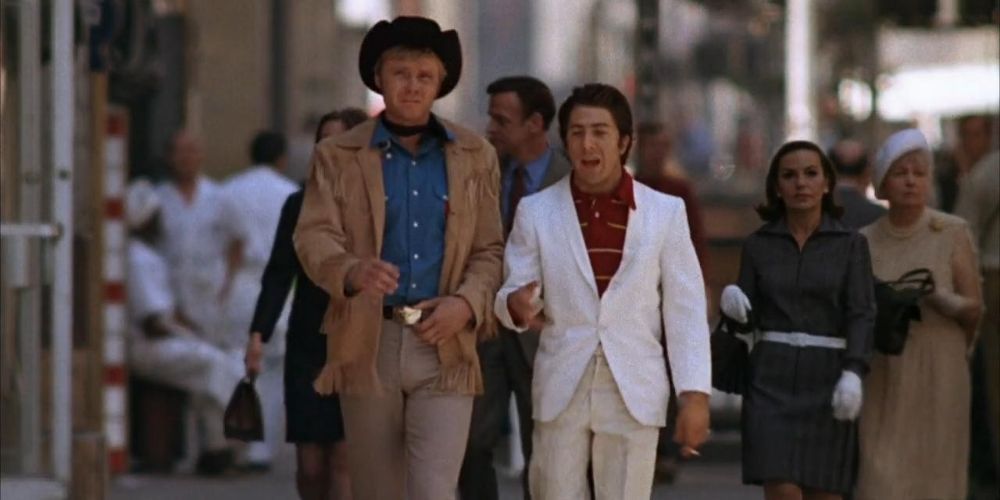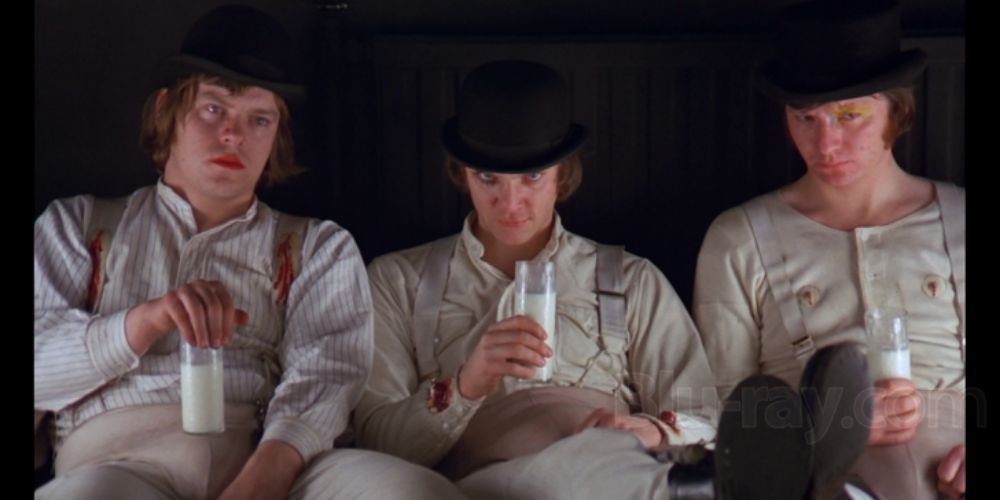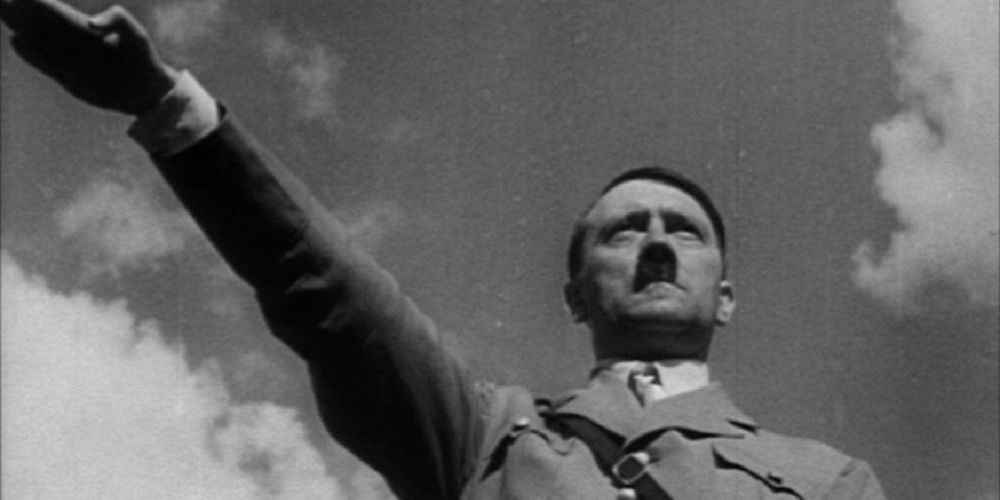Throughout history, films have been controversial for a wide variety of reasons. Each country has its own cultural taboos that dictate which types of films will garner controversy. In the United States, controversial films usually contain graphic sexuality or graphic violence. Other countries, such as France and China, have film industries run by the government, making politically-minded films the source of heightened controversy.
Historically, once a film is deemed controversial, it typically struggles with distribution. As a result, many controversial films in the United States become relegated to limited releases, while overseas, many controversial films get outright banned. However, some controversial films have managed to break through these restrictions by winning major awards worldwide.
10 A Touch Of Sin Is Yet Another Jia Zhangke Film Banned In China
One of China's most important filmmakers, Jia Zhangke, is the leading figure of China's Sixth Generation of directors, a group of auteurs who specialized in low-budget, independent productions that were highly critical of Chinese society. Most of the films Jia has directed have been banned in China, including 2013's A Touch of Sin.
Based upon real-life incidents in China, A Touch of Sin tells four loosely connected stories related to violent acts committed in the wake of China's rapid modernization. Despite not receiving a theatrical release in China, A Touch of Sin went on to win 19 awards around the world, including Best Screenplay at Cannes Film Festival.
9 Blow-Up's Depiction Of The Swinging Sixties Causes A Stir
Blow-up was the English language debut of Italian auteur Michelangelo Antonioni. The film is set within the mod culture of the Swinging Sixties and focuses on a photographer who believes he may have unintentionally captured a murder on film.
Blow-up's explicit sexuality caused ample controversy in the United States, with the film failing to gain Production Code approval and being condemned by the National Legion of Decency. However, by this point in time, the Production Code had lost nearly all its power, and Blow-up received a wide North American release. The film ended up earning two Oscar nominations and won the prestigious Palme d'Or at Cannes Film Festival.
8 Taxi Driver Inspires John Hinckley Jr.
One of the New Hollywood movement's most controversial films, Martin Scorsese's Taxi Driver, triggered intense backlash for its graphic violence and casting of twelve-year-old Jodie Foster as a child prostitute. Threatened with an X rating, Scorsese had to desaturate the color of the blood in the climactic shootout in order to obtain an R rating.
Taxi Driver would go on to win numerous awards, including the Palme d'Or at Cannes Film Festival. The film, along with Network, and All the President's Men, all infamously lost the Academy Award for Best Picture to Rocky. Years later, the controversy surrounding Taxi Driver was reignited when John Hinckley Jr. attempted to assassinate Ronald Reagan. Hinckley Jr. claimed the film had inspired him to commit the violent act.
7 Bonnie And Clyde Helps End Hollywood's Golden Era
The unprecedented sexuality and violence in Arthur Penn's Bonnie and Clyde helped signify the end of Hollywood's Golden Era and the beginning of the New Hollywood movement. A dramatization of the lives of American outlaws Bonnie Parker and Clyde Barrow, Bonnie and Clyde still receives controversy today, along with The Wild Bunch, for opening the floodgates of violence in American culture.
Although highly divisive at the time of its release, Bonnie And Clyde fared well during awards season, bringing in roughly twenty award wins. Most notably, Bonnie and Clyde was nominated for ten Academy Awards, winning two for Best Actress in a Supporting Role and Best Cinematography.
6 The Exorcist Is One Of Cinema's Most Misunderstood Films
One of the most controversial American films ever made, The Exorcist scarred an entire generation of moviegoers with its graphic violence and gory imagery. A story about a young girl who gets possessed by the Devil, The Exorcist not only caused an uproar amongst the general public for its obscene violence and vulgar language, it sparked major backlash from the Catholic Church.
In hindsight, the religious controversies generated by The Exorcist do not hold much merit, for the film can certainly be interpreted as one of the most pro-religious films ever made through its faith-affirming themes. Nevertheless, The Exorcist won 10 Academy Award nominations, winning two for Best Writing, Screenplay Based on Material from Another Medium, and Best Sound.
5 The Battle Of Algiers' Outrage Leads To Bomb Threats
Gillo Pontecorvo's The Battle of Algiers is a landmark film of international cinema that took a neorealist approach to depicting the Algerian War. The film has been lauded for its documentary style, use of non-professional actors, and nuanced portrait of the horrors committed by both sides of the conflict. The Battle of Algiers took home the Golden Lion, the FIPRESCI Prize, and the Award of the City of Venice at the 1966 Venice Film Festival.
The Algerian War was an immensely controversial subject in France for many years, which led to The Battle of Algiers being banned from release for five years. Once it finally started to be shown theatrically, Pontecorvo began receiving death threats, and theater owners were terrorized with bomb threats if they screened the film.
4 Luis Buñuel Deliberately Offends The Catholic Church With Viridiana
Surrealist iconoclast Luis Buñuel was a world-renown provocateur. He made it a point of emphasis throughout his career to constantly attack the Catholic Church and the Francoist dictatorship of Spain. Viridiana tells the story of a young nun who ultimately decides to abandon her religious aspirations. The film, released in 1961, was deemed blasphemous by the Vatican and was banned entirely in Spain until 1977.
Despite Viridiana's deliberately offensive nature, the film would go on to be the co-winner, along with The Long Absence, of the Palme d'Or at the 1961 Cannes Film Festival.
3 Midnight Cowboy Is The Only X-Rated Film To Have Won The Oscar For Best Picture
Released in 1969, Midnight Cowboy was a highly controversial film about a friendship between Joe Buck, a prostitute, and Ratso Rizzo, a con man. The film contains frank depictions of sexuality, including same-sex relations that directly led to Midnight Cowboy receiving an X rating.
Midnight Cowboy remains the only film in history to have won the Academy Award for Best Picture after receiving an X rating. The film also won Best Director and Best Writing, Screenplay Based on Material from Another Medium out of seven total Oscar nominations.
2 A Clockwork Orange Is One Of Cinema's Most Notorious Films
Directed by Stanley Kubrick, A Clockwork Orange is a dystopian crime drama that earned an X rating for its graphic violence and extreme sexuality. In addition, the film inspired an influx of copycat crimes, was condemned by multiple religious organizations, and was heavily censored or banned in several countries.
Although now considered a classic, A Clockwork Orange was met with a polarizing response from critics at the time of its release. The film was nominated for four Academy Awards, including Best Picture. Its most prominent award came at the 1972 Venice Film Festival, where it won the Pasinetti Award for Best Foreign Film.
1 The Triumph Of The Will Is Arguably The Most Controversial Movie Ever Made
Arguably the most controversial film of all time, Leni Riefenstahl's The Triumph of the Will is a Nazi propaganda film that documents the 1934 Nazi Party Congress in Nuremberg. Similarly to The Birth of a Nation, The Triumph of the Will is a revolutionary film that has been praised for its formal elements, such as editing and cinematography, despite the controversial nature of the documentary's content.
The Triumph of the Will won several awards worldwide throughout the 1930s, including Best Foreign Documentary at the 1935 Venice Film Festival and the Grand Prix at the 1937 World Exhibition in Paris.

